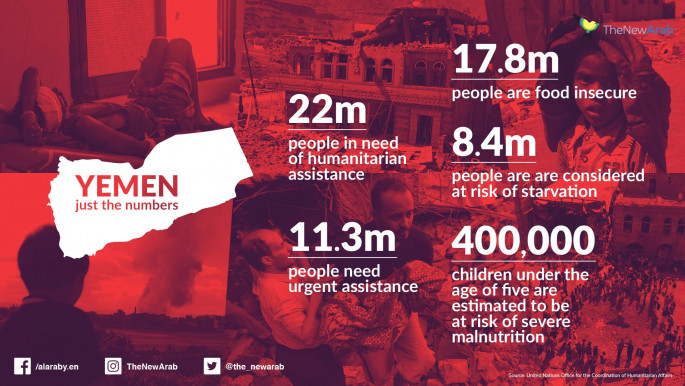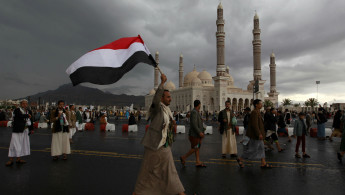Yemen: Is the world's worst humanitarian disaster finally edging towards peace?
US Secretary of State Mike Pompeo praised UN-brokered talks aiming to end Yemen's devastating conflict, saying "peace is possible".
"The work ahead will not be easy, but we have seen what many considered improbable begin to take shape," he said in a statement released hours after Yemen's warring parties agreed to a ceasefire in the vital port of Hodeida on the final day of peace talks.
"The United States commends participants from the Yemen consultations in Sweden for making progress on key initiatives," Pompeo said. "The end of these consultations can be the beginning of a new chapter for Yemen."
Meanwhile, a US Senate vote on Thursday dubbed "historic" by senior American politicians approved a resolution to end Washington's military support for Riyadh's war in Yemen.
Independent Vermont Senator Bernie Sanders, who votes with the Democrats, described the vote as "a historic moment".
"Today we tell the despotic government of Saudi Arabia that we will not be part of their military adventures," he said.
"So let us go forward today... and tell the world that the United States of America will not continue to be part of the worst humanitarian disaster on the face of the earth."
 |
There is a ceasefire declared for the whole governorate of Hodeida |  |
The bipartisan Senate "yes" vote sends a strong message to the White House, which has so far under Donald Trump chosen to back its long-term ally despite a mounting civilian death toll in Yemen.
The largely symbolic resolution came alongside landmark peace talks in Sweden - the first since 2016 - which have so far proven to be most fruitful for the war-torn country.
The previous round of talks, hosted by Kuwait in 2016, collapsed after more than three months of negotiations with no breakthrough.
On Thursday, UN chief Antonio Guterres announced a series of breakthroughs in peace talks with the warring parties, including a ceasefire for a vital port.
The UN will play a "leading role" in monitoring the Red Sea port of Hodeida, now under rebel control, and facilitate aid access for the civilian population.
"There is a ceasefire declared for the whole governorate of Hodeida in the agreement and there will be both from the city and the harbour a withdrawal of all forces," Guterres told reporters.
 |
UN Special Envoy Martin Griffiths, who was due to brief the Security Council on Yemen on Friday, said the pullout should take place "within days".
The rivals have also reached a "mutual understanding" on Yemen's third city of Taiz, the scene of some of the most intense battles in the conflict, to facilitate the delivery of aid.
In a highly symbolic gesture on the seventh and final day of the UN-brokered peace talks in Sweden, Yemeni Foreign Minister Khaled al-Yamani and rebel negotiator Mohammed Abdelsalam shook hands to loud applause - but both later voiced scepticism in separate press conferences.
International pressure has been mounting to halt the fighting between the Houthis and the government of Abedrabbo Mansour Hadi, backed by Saudi Arabia and its military allies.
Western governments have pressed for an end to the war in recent weeks after global outrage mounted against Saudi Arabia following the murder of Saudi journalist Jamal Khashoggi, which Turkish investigators, the CIA and most recently, the US Senate, believe was orchestrated by Crown Prince Mohammed bin Salman.
A new round of talks is scheduled for the end of January, with analysts predicting the US will continue to up the pressure on ally Saudi Arabia to end the conflict.
Follow us on Twitter: @The_NewArab



